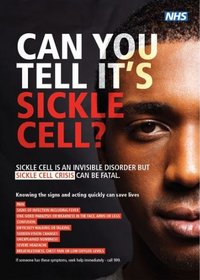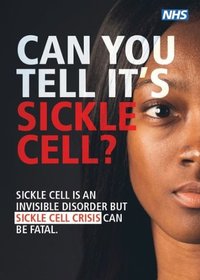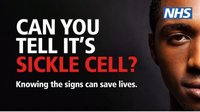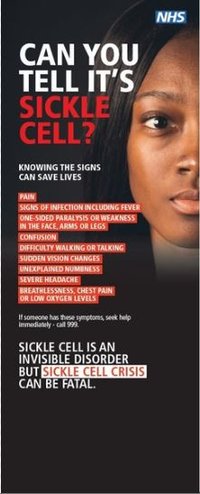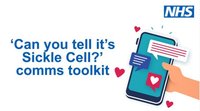Can You Tell It's Sickle Cell?
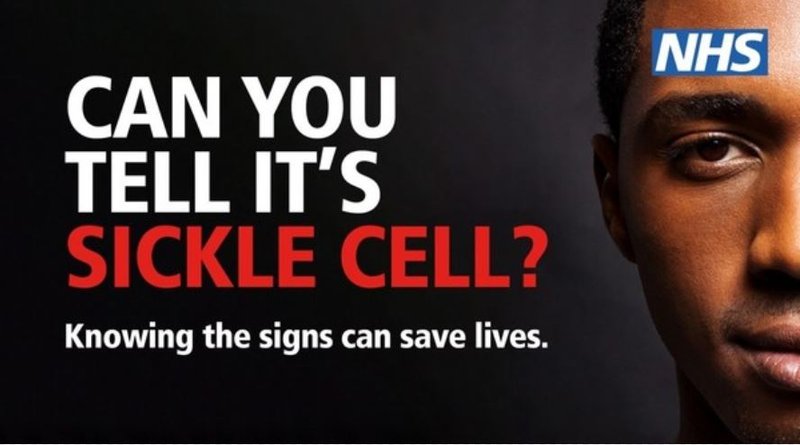
This campaign is part of a bigger drive to improve sickle cell care across the NHS. The campaign aims to increase awareness of the key signs and symptoms of a sickle cell crisis, particularly among urgent emergency care staff, plus those living with the condition and their carers.
Campaign details
Related website
https://www.e-lfh.org.uk/programmes/health-inequalities/
Target audience: Minority ethnic group
Topics: Early diagnosis
Overview
Sickle cell disease is the name for a group of inherited red blood cell disorders. The most serious type is called sickle cell anaemia.
People with sickle cell disease produce unusually shaped red blood cells that can cause problems because they do not live as long as healthy blood cells and can block blood vessels.
Sickle cell disease is a serious and lifelong health condition, although treatment can help manage many of the symptoms.
The "Can you tell it's sickle cell?" campaign is part of a bigger drive to improve sickle cell care across the NHS, increasing awareness of the key signs and symptoms of a sickle cell crisis,
The campaign also aims to promote and generate uptake of a new e-learning module about the condition and the healthcare inequalities related to it.
About the Health Inequalities Programme (learning e-module)
For some people in the UK there are still unfair and avoidable inequalities in their health as well as their access to and experiences of NHS services.
Health inequalities are the preventable, unfair and unjust differences in health status between groups, populations or individuals that arise from the unequal distribution of social, environmental, and economic conditions within societies. They can determine the risk of people getting ill, their ability to prevent sickness, or their opportunities to take action and access treatment when ill health occurs.
After more than a century of improvement, increases in life expectancy have stalled. For women in the most deprived communities in England, using the Index of Multiple Deprivation (IMD), there has been a decline in life expectancy in the last decade. People in more deprived areas spend more of their shorter lives in ill health than those in the least deprived areas.
The health inequalities programme is designed to help healthcare professionals to:
- understand the importance of health inequalities in clinical practice
- recognise the causes of health inequalities in services, experience, or outcomes among patients
- reflect on the role of the healthcare professional in narrowing the gap on health inequalities
- apply quality improvement methodology to tackle health inequalities in their field
Sickle cell disease
The first session of the health inequalities programme to be launched focuses on sickle cell disease, which is the name for a group of inherited red blood cell disorders. The most serious type is called sickle cell anaemia.
People with sickle cell disease produce unusually shaped red blood cells that can cause problems because they do not live as long as healthy blood cells and can block blood vessels. Sickle cell disease is a serious and lifelong health condition, although treatment can help manage many of the symptoms.
This session, which will take approximately 30 minutes to complete, is an ideal resource for healthcare professionals looking for information and advice on how they can help to close the healthcare inequities gap among patients of sickle cell disease.
Published: 1 November 2022
